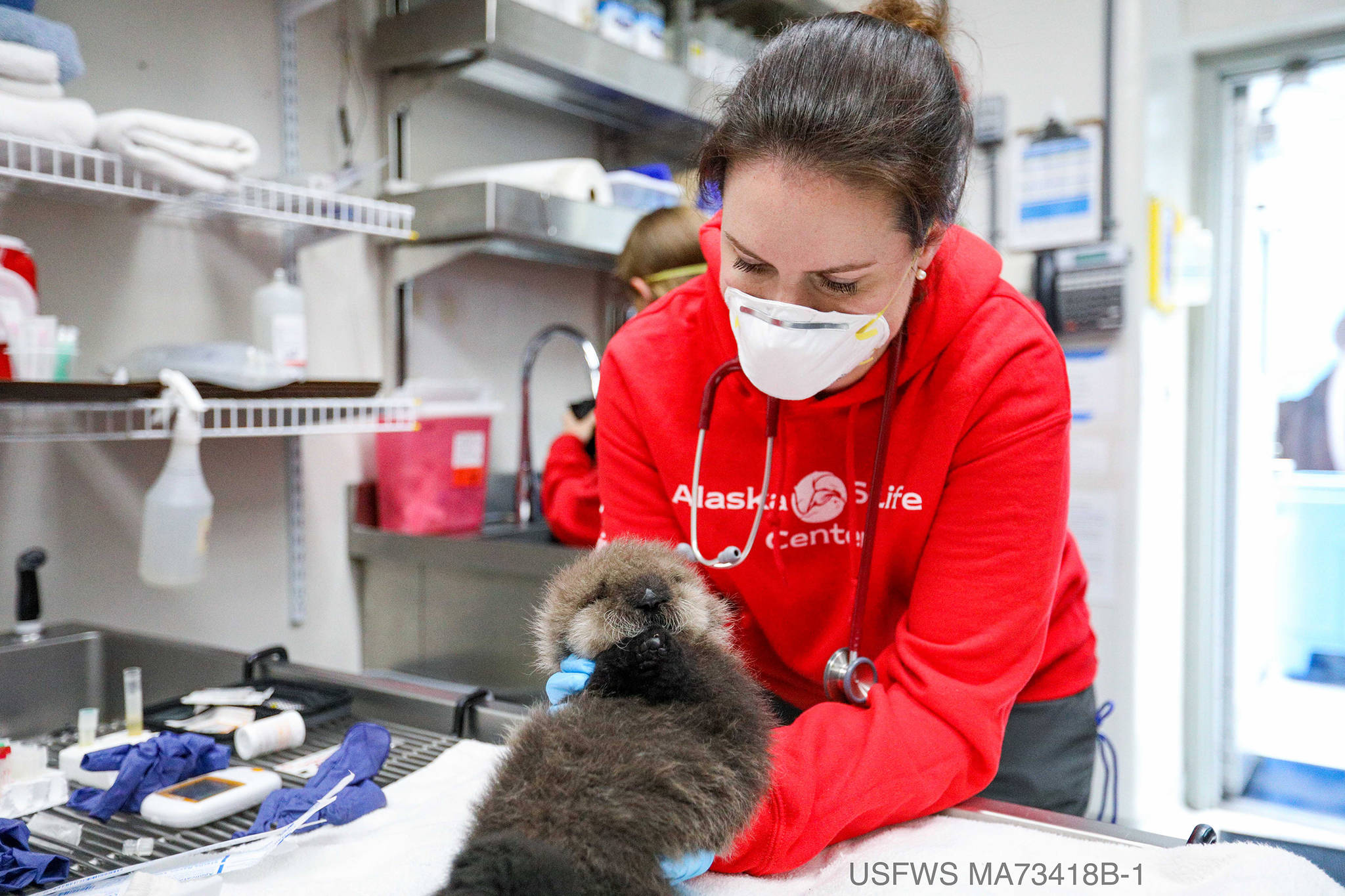The Alaska SeaLife Center admitted its first sea otter pup of the year last Sunday, according to the center.
The female pup was found stranded on a remote beach in Seldovia by a family that was camping nearby, the center said in a news release.
“When we encountered this tiny creature who looked so helpless, we felt that we had to do something. We remembered hearing that the Alaska SeaLife Center helps to rescue animals in need, so we reached out. Luckily we had cell service where we were camping,” said Neil Waggoner and Marisa Jaso, the pup’s rescuers, in a news release.
An adult sea otter was spotted in the area, but this animal did not approach the pup. After observing the pup for a day, the family sprung into action, according to the Alaska SeaLife Center.
After receiving U.S. Fish and Wildlife Service permission, the team at the Alaska SeaLife Center reached out to stranding partner, Michael Opheium of the Seldovia Village Tribe, for assistance, according to the center. Opheium cared for the otter overnight until she could be transported via water taxi to Homer the following day. The Homer Veterinary Clinic was called upon to administer fluids before the pup traveled by car to Seward.
The pup, which weighed in at just under three pounds, arrived weak but fairly stable, according to the Alaska SeaLife Center. The team was concerned about her initially because generally sea otter pups are very vocal, but this pup arrived more lethargic and silent.
After a few days of care, the pup has brightened, but the veterinary team is continuing to monitor her closely, according to the center. Sea otter pups require round-the-clock care so staffing will change drastically in the rehabilitation department to allow the pup to be fed and groomed every two hours.
“Otter pups are very hands-on animals to begin with so seeing this young pup come out of the kennel, barely reacting to staff, was concerning,” said Hanna Sundstrom, veterinary assistant specialist, in the news release. “After her exam it was crucial to get some calories on board and thankfully she latched onto the bottle right away. She has been eating well since then, so I am cautiously optimistic.”
People can contribute to the care of the pup online at alaskasealife.org/donate.

